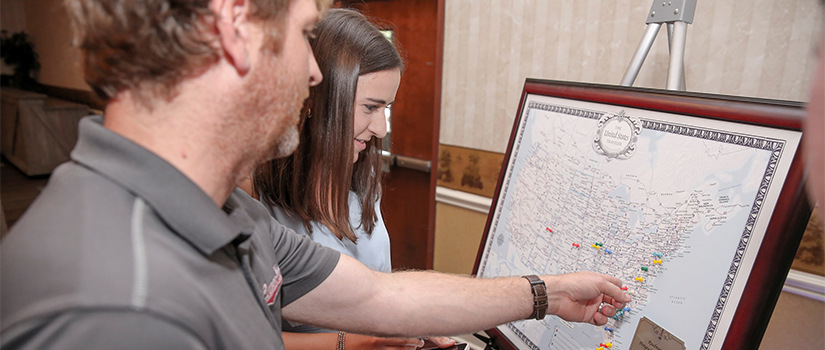As the number of applicants for residency positions increases, students seek to set themselves apart.
Nearly one half of USC College of Pharmacy students pursue a postgraduate training program following graduation. To ensure these students have the greatest chance to match with a program, the college provides a preresidency and fellowship track to assist them throughout the process of their applications and interviews.
The limited number of available residency positions makes the process extremely competitive.
“We want our students to have an advantage, to set themselves apart from other applicants,” says Brandon Bookstaver, 2004, director of Residency and Fellowship Training. “We launched the program formally in 2009 to help students learn how to showcase their skills.”
Students typically begin the optional track at the beginning of their second year of pharmacy school.
“I think one of the first things that students realize is the value of research in making them competitive,” he says. “They also realize how many choices are out there for a variety of career options.”
We want our students to have an advantage, to set themselves apart from other applicants ...
One way students explore options is through involvement with state associations such as the South Carolina Pharmacy Association and the South Carolina Society of Health-System Pharmacists.
Since the launch of the track, the number of students successfully matching to a postgraduate residency has climbed steadily. The college’s match rate continually exceeds the national average.
“I have noticed a trend that more of our students are being accepted into a wider array of opportunities, including industry fellowships and executive residency programs with pharmacy organizations,” Bookstaver says.
Clinical associate professor Celeste Caulder is a co-author with Bookstaver on Roadmap to Postgraduate Training in Pharmacy, a textbook for students and preceptors to prepare for residency and fellowship training. She serves as a mentor to students and can coach them for interviews with residency programs.
“We simulate what a real-life residency interview would look like,” she says. “That helps to alleviate some of the anxiety for what is, for all intents and purposes, a job interview.”
Caulder’s advice to those who have the slightest interest in pursuing residency? Start preparing immediately.
“Oftentimes, they may think they have four years, but those years fly by so quickly,” she says. “Start early with developing relationships with your colleagues in the classroom and with mentors, network with faculty and with pharmacists in the field. You can never start too early.”
Topics: Pharm.D. Program, Postgraduate Training, Outcomes and Accreditation
